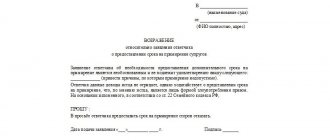3.4 / 5 ( 7 votes)
The procedure for divorcing spouses is often complicated by the issue of establishing property rights. When dividing joint property, according to the law, they are generally guided by the articles of the Family Code, which establishes that it is divided in equal shares between husband and wife. This also applies to cash savings. When dividing through a court, the parties will need to resort to parts of the Code of Civil Procedure of the Russian Federation, the Tax Code of the Russian Federation and a number of federal laws. Let's take a closer look at how spouses' funds are divided in 2021 and whether it is possible to avoid it.
Basic principles for dividing funds between spouses
The RF IC establishes a regime of community for all property acquired by spouses during marriage (Article 34). This also applies to cash savings. The following are considered as such:
- all income from employment, including bonus payments, salaries, etc.;
- income from business activities. Here, profit on shares, proceeds from the sale of common property, etc. will be taken into account;
- income from the intellectual activity of the spouse;
- any benefits, scholarships and pension payments.
Only payments made by the state and other structures cannot be included in general income if they have a designated purpose.
It is easier to divide the funds accumulated in bank accounts; their presence and movement can be traced. Especially if this is not some kind of account that one of the spouses opened in his own name without informing the marriage partner. It is more difficult to divide cash because... sometimes it is difficult to calculate their number if the spouses themselves do not give their consent.
What kind of money is not shared?
If amounts of money are received during marriage, they are recognized as jointly acquired property. There are a couple of exceptions to this rule. For example, one of the spouses will sell real estate that he acquired before marriage and is its sole owner. In this case, the money received from the transaction will be his property and cannot be divided.
The funds that both spouses cannot claim at once are targeted payments. This applies to maternity capital, compensation payments received for causing harm to health at the enterprise, etc. (Article 34 of the RF IC).
Section of funds in a bank account
In practice, there are several scenarios for the development of events that determine the algorithm of actions:
- Opening a bank deposit before marriage and depositing joint marital money into it subsequently. Under such circumstances, the contribution is initially classified as personal property and is not subject to division. However, its owner must compensate the other party for half of the funds that were contributed from the family budget, taking into account accrued interest, if we are talking about a deposit.
- Opening a bank deposit during the period of official marriage and registering it in the name of one of the spouses, as well as further cashing out until the divorce. The party claiming the property must prove that the funds were used without her consent and not for family needs. If proven successfully, the court will oblige you to pay half of the funds used.
- Opening a bank deposit during the period of legally registered relations, but in the actual absence of a union or separation. Based on Article 38 of the RF IC, if there is sufficient evidence, the court, under the stated circumstances, may recognize the funds as the personal property of one of the spouses, including in the context of the question of whether donated money is divided during a divorce.
- Opening an account before registering a marriage. In this situation, the funds automatically fall into the category of personal property and are not subject to division. It is important to pay attention to two aspects. The first is the date of conclusion of the agreement. Money is the personal property of the person who signed if the first contract, regardless of subsequent automatic renewal, was signed as a single person. The second is the question of the origin of funds in the account. The second spouse does not have the right to claim resources if the spouse’s personal funds were initially deposited into the account, but subsequently, during the marriage, they were transferred to the other account in the same amount, taking into account capitalization.
- The account was opened during the period of official marital union, but funds from personal property are deposited on it, for example, from the sale of a donated apartment. However, such a chain of events must be confirmed and proven in court, which is quite difficult in practice. Copies of contracts, receipts for receipt of funds, payment orders, and bank agreements serve as convincing arguments.
- Opening a bank account in the name of one of the spouses during the marriage, if the other party does not know about the existence of an agreement with the bank. As a general rule, knowledge of the second party is not a prerequisite. Such funds are always subject to division if they do not fall into the category of personal property of the investor.
- Opening a bank deposit in the name of a child who has not reached the age of majority. Regardless of the status of jointly acquired property, such funds are the property of the child, not the spouses, and therefore are not subject to division upon divorce. This practice is quite common, and the law fully supports the interests of the child.
When filing a corresponding claim in court, it is important to take into account the need to timely resolve the issue of securing it. In parallel with the statement of claim, it is recommended to file a petition for a court request to the banking institution regarding the availability of funds, and, if necessary, initiate a temporary ban on the order.
This measure is relevant if there is a possibility that the second spouse will close the account and withdraw funds from it. The petition is justified by the provisions of Articles 131-132 of the Civil Code of the Russian Federation . When it comes to the urgency of the question of whether money in an account is divided during a divorce, efficiency and decisiveness play a paramount role.
Is money in accounts divided during divorce?
The easiest way is to separate bank deposits. It is enough to request a printout of the movement and balance of funds in the account. Such amounts are divided in a general manner, based on the size of the shares established by a court decision or agreement between the spouses.
Bank deposits that each spouse made before entering into an official marriage will not be subject to division.
In such a situation, the court will take into account the following factors:
- when the bank account was opened;
- on what date the cash receipts are received into the account;
- availability of evidence of the origin of funds deposited into the account.
How should property be divided?
Equally according to the law
There are many options for cases, and therefore court decisions on the division of accounts in 2021. For example, an account was opened by one of the spouses before marriage, but money was placed there already during the existence of the family from the general budget. This means that part of the amount is subject to division. Or the account was opened during marriage, but the money was deposited there from the sale of an apartment inherited by the spouse. In this case, the money from the account is not divided.
In what cases will deposits and money not be subject to division?
It is not always possible, even in court, to recognize funds in the form of cash or in bank deposits as jointly acquired property.
Thus, funds will not be subject to division and cannot be recognized as jointly acquired property of spouses in the following cases.
The contract was concluded before the marriage was registered
If the deposit is opened before the official registration of the relationship in the name of either spouse, then the funds on it will not be subject to division.
If, after registering a marriage, funds were deposited into the account from joint savings, then the second spouse has the right to demand recognition of these finances as jointly acquired property and, accordingly, division in equal shares.
Also, if a bank deposit opened before marriage was closed during the marriage, and the funds in the account were transferred to another bank, then the second spouse does not have the right to claim his share in this property - all this money is also considered personal to one of the spouses.
The money was gifted or inherited by the spouse
Inherited property or property received as a gift, including money, cannot be recognized as joint property.
Such money was and remains personal property, regardless of the amount, date of donation (inheritance), financial situation and other factors.
To confirm this fact, the spouse who is not interested in the division must present to the court a certificate of the right to inheritance, account statements and other documents indicating the nature of the origin of the cash deposit in the bank.
The deposit is opened in the name of the child
Funds placed in bank accounts opened in the name of a minor child are not subject to division, regardless of who contributed funds to this account.
Such property will be considered to belong exclusively to the minor in whose name the account is opened.
Taking it into account in whole or in part when dividing jointly acquired property is not permitted under any circumstances.
How to divide joint money savings
The division of marital property, including finances, can be carried out in two main ways:
- In a court.
- Through a peace agreement.
If a couple has similar views on the division of the common property of the spouses, it is cheaper and faster to implement it by signing certain agreements:
- Marriage contract. This document is signed before the wedding or during the marriage. According to it, spouses can establish any property ownership regime that does not contradict Russian laws. Those. they themselves determine how much money and who will receive it. It is valid even for personal property.
- Property division agreement. It occurs during marriage or after divorce. The document allows you to delimit ownership rights only to the joint property of the spouses, i.e. with their common money. Any property regime can be established if it does not contradict the law.
On our website you can do it if necessary.
If the spouses fail to reach an amicable agreement, each of them has the right to file a claim with the court asking for forced separation.
How to divide a loan or loan
The specifics of dividing the spouses’ obligations under a loan or loan depend on the terms of the agreement, the position of the credit institution, the presence of mutual consent and the purpose of using the loan.
By default, the general rule of clause 3 of Art. is applicable to debt obligations. 39 RF IC. According to this rule, the remaining debt on the loan must be distributed between the spouses in proportion to the shares awarded to each of them in the right of common property.
The loan can be divided without the participation of the creditor only during legal proceedings. To avoid trial, spouses can resort to one of the following options:
- Contact the lender with a proposal to highlight the obligations of each spouse under the agreement (in this case, an additional agreement is concluded to the loan agreement).
- Include in the agreement on the division of jointly acquired property a clause that one of the former spouses pays compensation to the other (who repays the loan) (a certain share of the total payment).
The possibility of demanding compensation for part of the funds allocated by the ex-spouse to repay the loan is confirmed, among other things, by the ruling of the Supreme Court of the Russian Federation dated November 20, 2018 No. 18-KG18-201.
If one spouse was the borrower under the agreement, in order to award compensation in court it is necessary to prove that the funds received were used for the general needs of the family.
This condition was outlined by the Supreme Court of the Russian Federation in Review of Judicial Practice No. 1 for 2021.
Agreement on the division of funds during divorce
Spouses have the right to draw up an agreement on the division of property during the marriage or after its breakup. They can also do this during the divorce process. The text itself is written in free form. The main thing is to provide detailed information about each object that is subject to division.
If the question concerns cash savings, it is necessary to indicate in which account they are located, bank details, what specific amount and/or amount of interest each spouse will receive upon divorce. In addition, the agreement contains the following information:
- passport details of the spouses (full name, date of birth, residential address, series and numbers of documents);
- information about the existence of marital relations with reference to documents;
- presence of minor children;
- total amount of savings;
- indication of specific bank accounts;
- order of division;
- the effective date of the agreement;
- date of compilation and signatures of the parties with transcript.
An agreement on the division of property must be notarized. Without it, the document is considered void.
On our website you can read the text if necessary.
Legal methods of division
In accordance with current legislation, division of joint savings is possible in two ways: judicial and extrajudicial. The second option is the most preferable and least expensive. There are two arguments to support this. First, money, unlike real estate, is not subject to valuation. It is quite difficult to prove the presence of savings in court. Secondly, the judicial procedure is always associated with bureaucratic delays, legal costs and time costs.
The decision to independently divide marital money can also be made in several ways:
- Marriage contract. This form of agreement requires mandatory notarization and is always drawn up before or during the marriage. The document includes key conditions for the division of property, including funds. The division of property available at the time of the conclusion and acquired after the conclusion is allowed. The regulatory norm is Article 41 of the RF IC .
- Fund sharing agreement. Unlike a contract, its conclusion is allowed not only during the period of official marriage, but also during the process of its dissolution and even after the official registration of the breakup of the union. The agreement may regulate the division of only funds or other property that the couple already has.
A properly drafted agreement has the force of a formal legal document. However, the law does not provide for strict requirements for form and content. The basic condition is the general principles of document flow and reflection of the voluntary intentions of the parties.
Unlike the division of property by law, this format allows spouses to independently establish their property shares. For example, an agreement may contain a clause that in the event of a divorce, the party with whom the children remain to live receives 70% of the bank savings, and the other party receives the remainder.
It is recommended to specify the exact amounts due to each party in a divorce, as well as the timing and procedure for receiving them, for example, in cash against a receipt or crediting to another account. If there is already a court decision on the division of marital property that has entered into legal force and such a decision determines the conditions for the distribution of rights, signing an agreement after its adoption is not allowed.
Division of deposits through the court during divorce
Most spouses divide property by court decision. The judge starts from Art. 38 of the RF IC and shares joint property in equal shares. Cases of departure from this principle occur only when dividing real estate if the couple has minor children.
How to properly divide money deposits between spouses through the court.
Statement of claim for division of funds
Each spouse has the right to file a claim in court. It is advisable to entrust the document preparation procedure to a professional lawyer. If this is not possible, it is necessary to build on Art. 131 Code of Civil Procedure of the Russian Federation when writing text. The claim for division of common property contains the following information:
- Title of the document;
- information about the organization to which the application is being submitted (name of the court and location address);
- passport details of the plaintiff and defendant (first name, surname, patronymic, residential addresses, dates of birth, etc.);
- the essence of the claim, i.e. what the plaintiff sees as an infringement of his property rights;
- ways to resolve the issue proposed by the plaintiff;
- links to regulations confirming the legality of claims;
- preliminary calculation of the finance section;
- date of compilation and signature of the plaintiff with transcript.
The document is submitted to the district court at the defendant’s place of residence. If the divisible amount is less than 50 thousand rubles, then you must contact the magistrate.
Seizure of funds in accounts during divorce
If there is a threat that one of the parties may withdraw funds from the account and dispose of them at its own discretion before the division, it is necessary to seize the property. This can only be done in court. An application for interim measures will be required. It is submitted in the same way as a statement of claim to the court office. If a positive decision is made, it should be referred to the Bailiff Service, which will begin enforcement proceedings. During this process, a request will be sent to the bank, and the accounts will be frozen for the entire duration of the trial.
Conditions and features of the section
In accordance with the current civil legislation, cash and non-cash funds of the family also fall under the category of joint family property regime and are subject to division according to the principle of real estate. This category includes, among other things, money donated for a wedding. That is, by default, each spouse has the right to an equal share, unless otherwise specified in the marriage contract or established by law.
The legislator does not differentiate money based on the principle of ownership of the person who earned it. It does not matter whether both spouses supplemented the income or one was employed, and the other party performed the functions of housekeeping and raising children.
However, there are some specific features in the issue of dividing this category of property. So, for example, unlike a car and an apartment, which are registered with the relevant authorities and can be alienated by a notary only with the consent of both spouses, money more often becomes the object of illegal actions, since they are easy to conceal.
In fact, cash is not available for control, including if a division is initiated through the court. It is easier to resolve the issue with savings in non-cash form, which are located in a current, savings or deposit account. An important feature is that the object of division (that is, money) must meet the criterion of joint property: those acquired during marriage are not the personal property of one of the spouses, which is confirmed by bank agreements, statements, receipts, receipts.
Thus, answering the question of how money is divided when spouses with or without children divorce, spouses have two options - in court or by concluding an alimony agreement.
How not to split money during a divorce
To avoid division of contributions during a divorce in 2021 and to act legally, you should collect and present evidence that the funds are the personal property of only one party. To do this, you can submit payment documents, sales contracts, etc.
If the accounts are not seized, you can withdraw them and transfer them to a small bank. But this option is not suitable for a small locality where there are few credit institutions, which means that bailiffs and a judge can make a simple request about the availability of an account in 2021.
Arbitrage practice
The practice of court decisions on the division of funds between spouses is extensive, but generally monotonous.
The judge proceeds in this matter from the principle of equality of shares. The need to prove that the money belongs to only one party is assigned to it. If such evidence is not provided, all savings received into the accounts during the existence of the marriage are automatically considered joint property. The former husband and wife have the right to use the joint property of the spouses even after a divorce. But if we are talking about monetary savings, then it is impossible to realize it, so a division of such is necessary. This can be done by contract or through the courts.
Division of money and deposits of spouses after divorce
The section of both cash and deposits has a number of features and nuances. Knowing them, the spouse has every chance to recognize it as jointly acquired property and receive the share due to him. The hardest part is dividing cash.
The reason for dividing money or deposits is only a statement of claim with the corresponding requirement. If a spouse filed a claim for division of an apartment, the court is not obliged to search for all possible property, including deposits.
To request information from banks, you need to petition the court. Such a request can be made both when filing a claim and during the proceedings.
The best way to divide finances between spouses is to enter into an appropriate agreement. This will save time, nerves and money, which would otherwise have to be spent on legal proceedings.
Cash
The main problem when dividing cash is not just recognizing it as jointly acquired property, but also proving the very fact of its existence.
That is why cash is an ideal property that is almost impossible to divide and discover in the event of a divorce, especially if the second spouse does not have information about its exact amount.
Unlike real estate, vehicles or deposits, information about which can be obtained from registration authorities or banks, “cash” does not appear anywhere.
Its existence is initially confirmed only by the text in the statement of claim and indirectly related documents.
| No. | Evidence in progress |
| 1 | Certificates about the movement of funds in the account, which reflects the withdrawal of large sums of money |
| 2 | Documents on the sale of property: a car, expensive equipment, luxury items, real estate, which will indirectly indicate the receipt of the amounts reflected in them to the spouse |
| 3 | Witness testimony (very rarely taken into account by the court) |
In addition, the spouse interested in the division will have to additionally prove that the money is jointly acquired property.
In all other respects, the division of property in the form of money is no different from the general procedure for dividing property between spouses.
Deposits
The mechanism for dividing funds held in bank accounts (deposits) is no different from dividing any other property of spouses.
Perhaps the first requirement in the statement of claim will be to recognize these deposits as jointly acquired property of the spouses, if the second marriage partner categorically denies the involvement of the second spouse in the accumulation of these funds.
During the court hearing, the plaintiff insisting on dividing the deposits will need to prove the following facts:
- money is the jointly acquired property of both spouses;
- the contribution was formed exclusively from general earnings and savings;
- The personal funds of each spouse (donated, inherited, etc.) were not contributed to the contribution.
If there is proper evidence, the court recognizes the savings in deposits as jointly acquired property of the spouses and division is made.
Like any other property, contributions and deposits are subject to division in equal shares between spouses. They can also be used to offset the value of the second spouse’s share of property (for example, the husband receives a car, and the wife receives a bank deposit if their value is equal).









